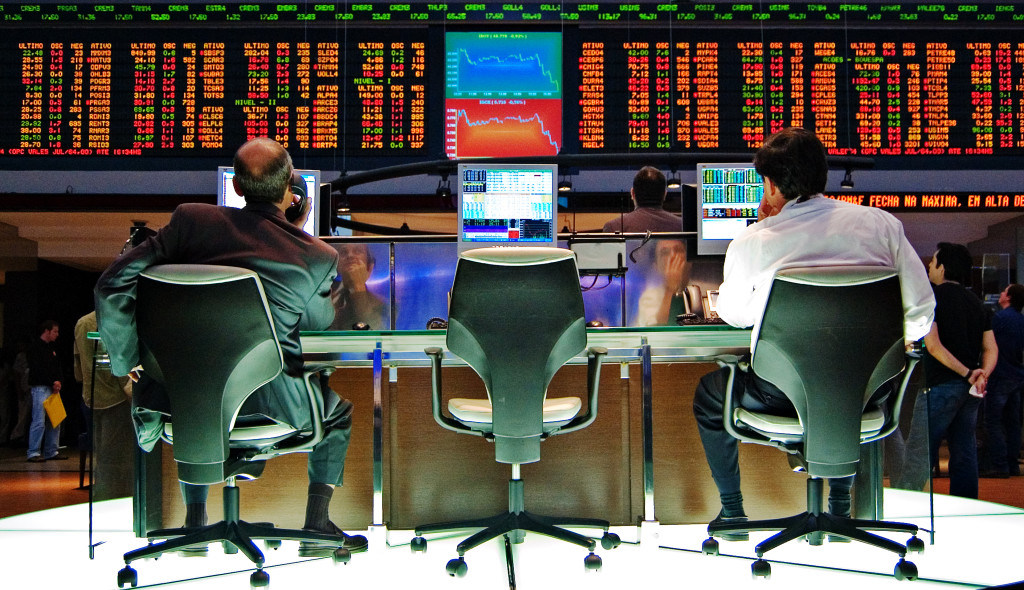Why China's Economy is OK—but China's Government Is Not

You can sum up what's happened to the Chinese stock market this summer in a few quick figures. If you'd invested in the Shanghai Composite a year ago—August of 2014—when the index was around 2,200 points, your investment would have increased in value by 45 percent through today. If you'd waited until Jan. 1, 2015 to invest, you would have seen your money rise by 50 percent, and then fall by the same amount, leaving you with no profit in the year to date. And if you'd invested on June 12, the most recent market top at over 5,100, you would have lost not quite half your money in less than ten weeks, as the market slid.
 The Chinese economy is doing OK. It remains one of the world's most extraordinary engines of growth. In the first decade of this century, more Chinese joined the middle class than live in Germany, France and the U.K. combined. Even the most dire predictions of economic activity in 2016 assume China will grow at twice the rate of the U.S. Over the last couple of years, however, and especially this year, the market has come unglued from the economy.
The Chinese economy is doing OK. It remains one of the world's most extraordinary engines of growth. In the first decade of this century, more Chinese joined the middle class than live in Germany, France and the U.K. combined. Even the most dire predictions of economic activity in 2016 assume China will grow at twice the rate of the U.S. Over the last couple of years, however, and especially this year, the market has come unglued from the economy.
For most of its existence, Chinese stock markets have been a small experiment in helping companies raise money. (To this day, only 5 percent of the money raised by businesses comes from selling publicly traded stock.) During the early years of Xi Jinping's administration, the government began touting the wonders of the market. This spring, even after the market had nearly doubled in less than a year, the government assured citizens that the bull market was just getting started. This sort of language, appearing in the country's government-run news outlets, carried with it implicit assurance for ordinary investors. Rhetoric like this helped make the stock market a source of national pride and a place where citizens put their money.
A rising stock market that garnered public attention helped solve two problems for the Xi administration. The first is that China has become what scholars call post-socialist. The single-party state and its key institutions remain intact, even as the ideological stances associated with communism subside or even reverse (including, most dramatically, opposition to the market). This shifts the government's source of legitimacy from ideology to growth. A booming stock market was a potent symbol of that transformation. Since the (literal) party line is that the party is the state is the people, a strong market suggested a strong state, and a prosperous market suggested a prosperous people. It was a win-win situation, in that the government won twice.
Xi's second problem, the normal one for market economies, is income inequality. Change comes to China two ways: late, then fast. China only embraced the market forty years ago, but its income inequality has already become worse than that of the United States. A market open to individual investors allowed the government to associate the occasional, spectacular IPO with the idea that ordinary citizens could profit from the resulting boom (a sentiment very like that in the U.S. in the late 1990s). If Ma and Pa Shuihu could buy and sell stocks, Beijing could argue that the rapid minting of billionaires would lead to generalized prosperity for the masses, at least if the masses opened a brokerage account.
Which, boy howdy. In late 2014, people were opening new brokerage accounts at a rate of around 100,000 a week. April of this year saw 3.3 million accounts opened in a single week. In May, there was a 4.4 million week. One cause of this account-opening boom was a move to let individual investors, previously limited to a single account, open up to twenty, in order to maximize their chances of being selected for IPO shares. And the second was the government's decision to talk up the market, seemingly as a way to draw investment away from the real estate bubble. (The Onion's piece, Recession-Plagued Nation Demands New Bubble To Invest In], remains the definitive analysis of the behavior of governments threatened with sharp market deflation.)
The Xi administration also relaxed the rules on margin trading, where investors pledge the existing value of their stocks to secure money to invest in more stocks. In a rising market, margin trading yields spectacular gains, by making existing investments work twice—once as stocks, and once as collateral. In a falling market, of course, that means you have to sell off the collateral to pay for the loans, ratcheting up your losses, but sophisticated investors know that and plan accordingly.
Unfortunately, 2015 was not a year of sophisticated investors. Four new investors out of five have a high school degree or less. (Two-thirds didn't finish high school.) Jim Fallows, the great China watcher, once noted that the sudden arrival of cars for ordinary citizens made China a nation of first-generation drivers. The government's reduction of trading restrictions and their advertisement of the market have made China a nation of first-generation investors.
Stock bubbles happen all the time, and are generally less painful than asset bubbles. (Losing imaginary money is less bad than losing an actual house.) Most bubbles are just the price of doing business, but occasionally they become a turning point in history. The fall of the Shanghai Composite Index, which began in mid-June, was originally treated as the former. The government quickly and publicly started buying stocks, while limiting sales and lowering trading costs, hoping to reassure small investors that they could stay in the market, while preventing savvier institutional investors from getting out. (Anyone who owns more than 5 percent of a single company's stock is forbidden from selling it until October.)
These interventions, an enactment of the implicit promise of government protection, returned the market to an upswing by late June, generating the largest one-day rise in almost a decade, less than two weeks after the initial slide began. This was followed by another sharp rise the next day. The day after that, June 25, the market began to collapse in earnest, losing a thousand points, a fifth of its remaining value, in less than two weeks.
Since then, the government has thrown extraordinary resources at the market, in an attempt to keep it from sliding lower, including further relaxing margin requirements, allowing large pension funds to get into the market, and even letting farmers use their land as investment collateral. (What could possibly go wrong?)
Whatever the complex issues with long-term risk, however, the short-term issue with these interventions is simpler. They didn't work. The remaining up-and-down movement in July and August has been mostly down, culminating—so far—in today's 8.5-percent decline, the largest one-day fall since the global recession began in 2007. The stock collapse now looks like a turning point.
What's at stake is not just the aggregate value of a particular index. If that were all that mattered, up 45 percent over 12 months is still pretty firmly in the "good news" camp. For all the frenzy, the economy is still growing, if somewhat sluggishly by Chinese standards, and most ordinary citizens are not invested in the market. What's at stake is the government's credibility.
It's never hard to explain a market collapse. They happen when common sense returns, as people realize that the companies they are investing in aren't worth as much as the price of their stock. The hard part is usually figuring out why common sense departed in the first place. Animal spirits are invoked, short-sellers are scapegoated, and so on, leaving only a diffuse sense of cause and effect.
In China, though, things are different. The cause of the bubble was the government. Officials relaxed trading restrictions and started talking up stock investment. Everyone saw them do it, and indeed, the surge of individual traders happened because the Xi administration was willing to mortgage its well-deserved reputation for competence to assure those very investors that the market was a safe bet. And if the government cannot protect the investments of individual investors in the face of a market rout, then the market as a symbol of governmental strength and ability turns negative, along with the index itself.
In the same way Hurricane Katrina allowed Americans to consider that we might be losing the war in Iraq, by making it more acceptable to question the competence of the people in charge, the behavior of the Shanghai Composite Index casts more than Beijing's economic policies in doubt. The government couldn't prevent the market from collapsing, even after assurances during its rise, and after visible, persistent and enormous efforts to stem its fall, raising questions about the government's managerial nous. The explosion in early August of several thousand tons of volatile chemicals illegally stored in Tianjin (southeast Beijing in all but name), and this weekend’s chemical explosion in Zibo City, takes place against a background of worry about the government's handle on regulatory issues generally. In post-socialist China, a reputation for effective management is a pillar of legitimacy, one that has now been shaken.

